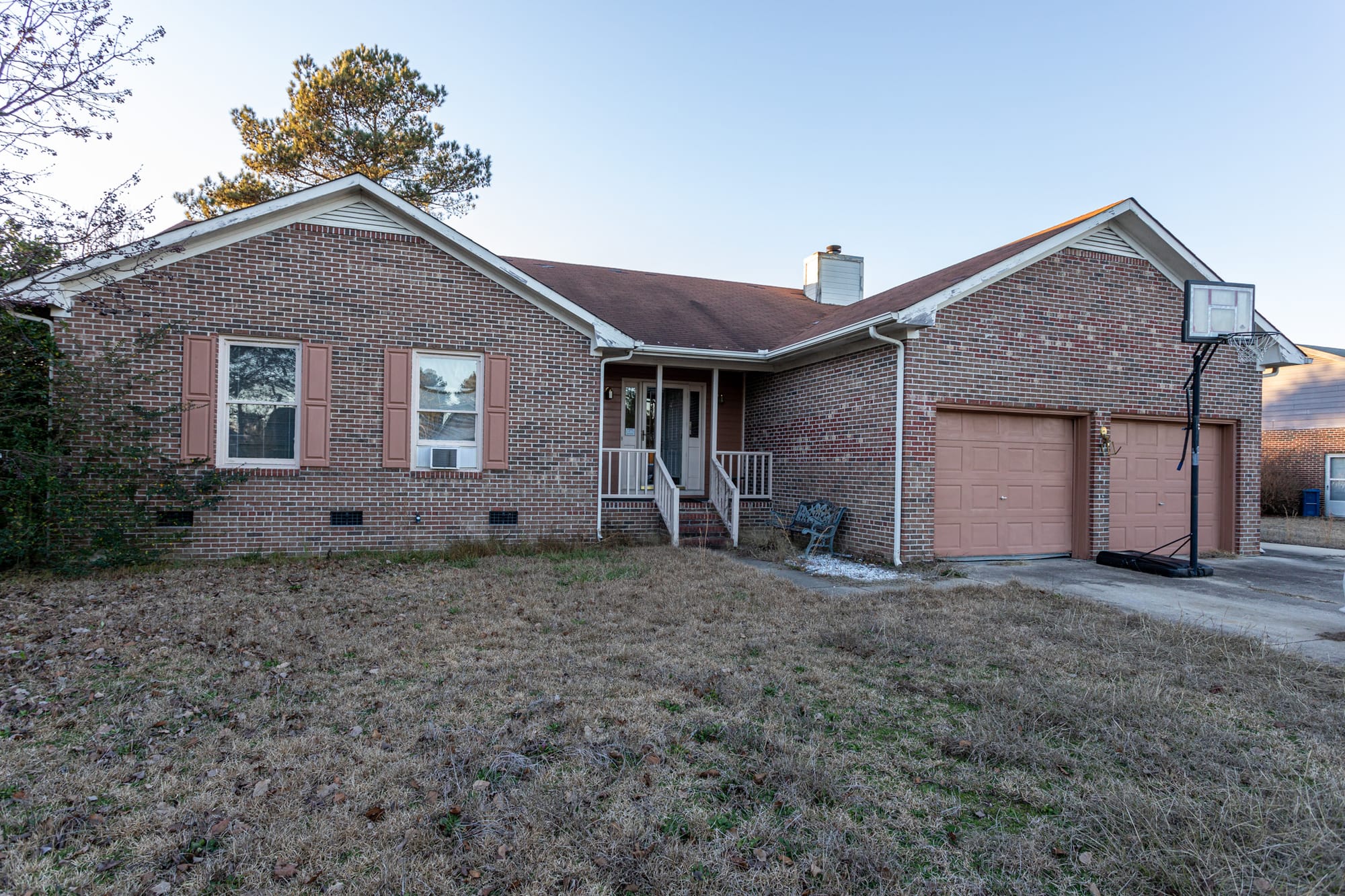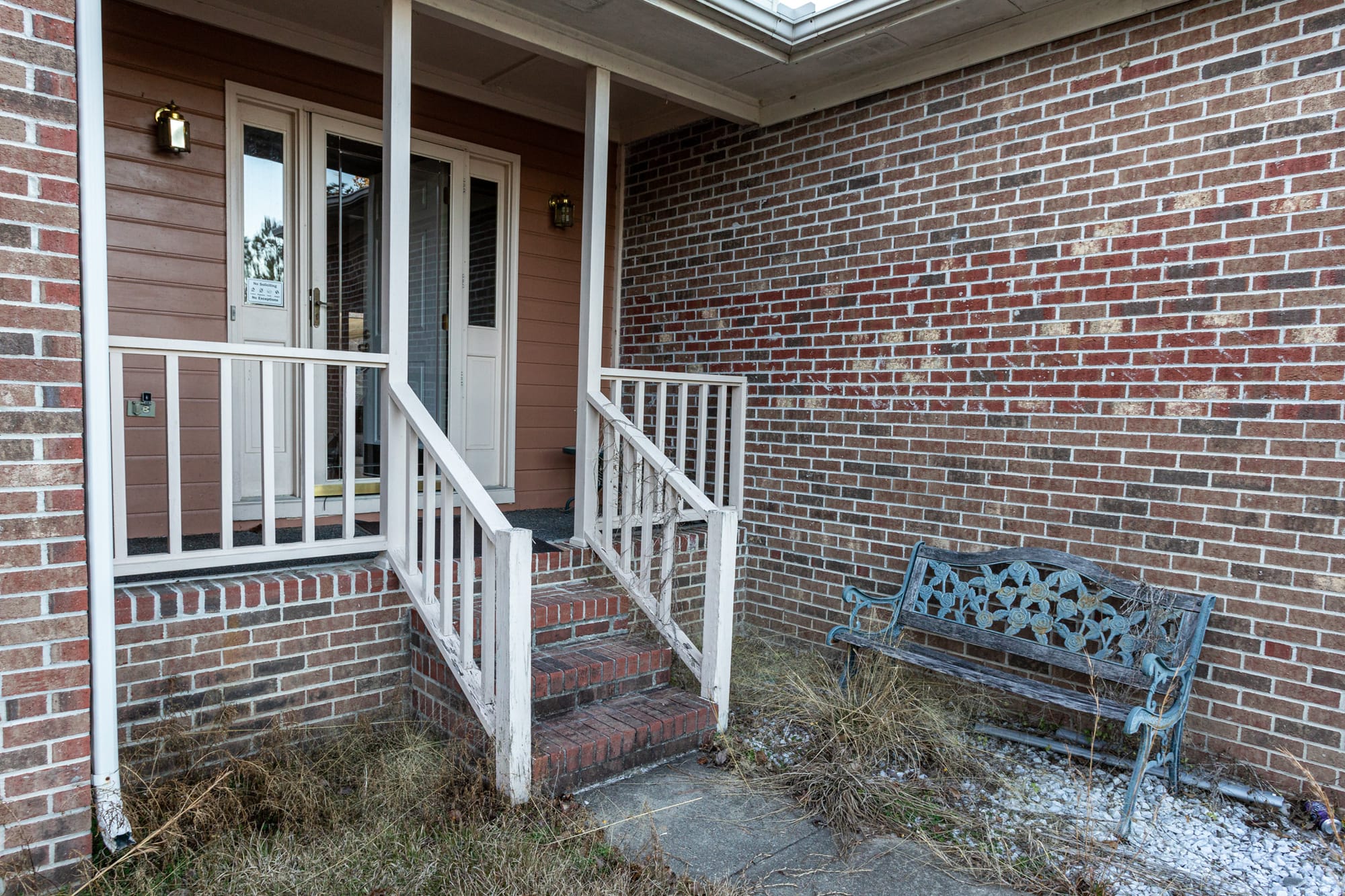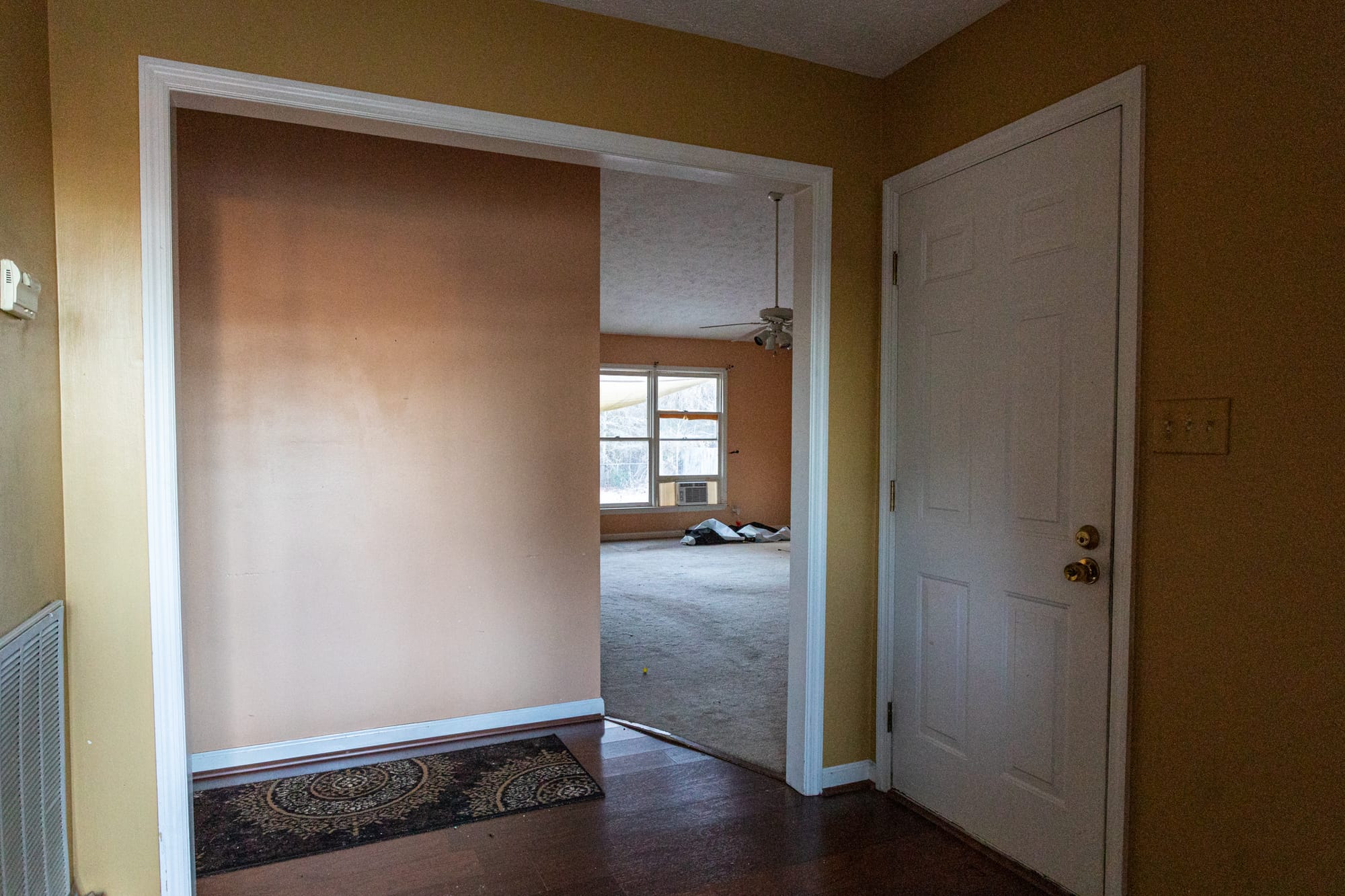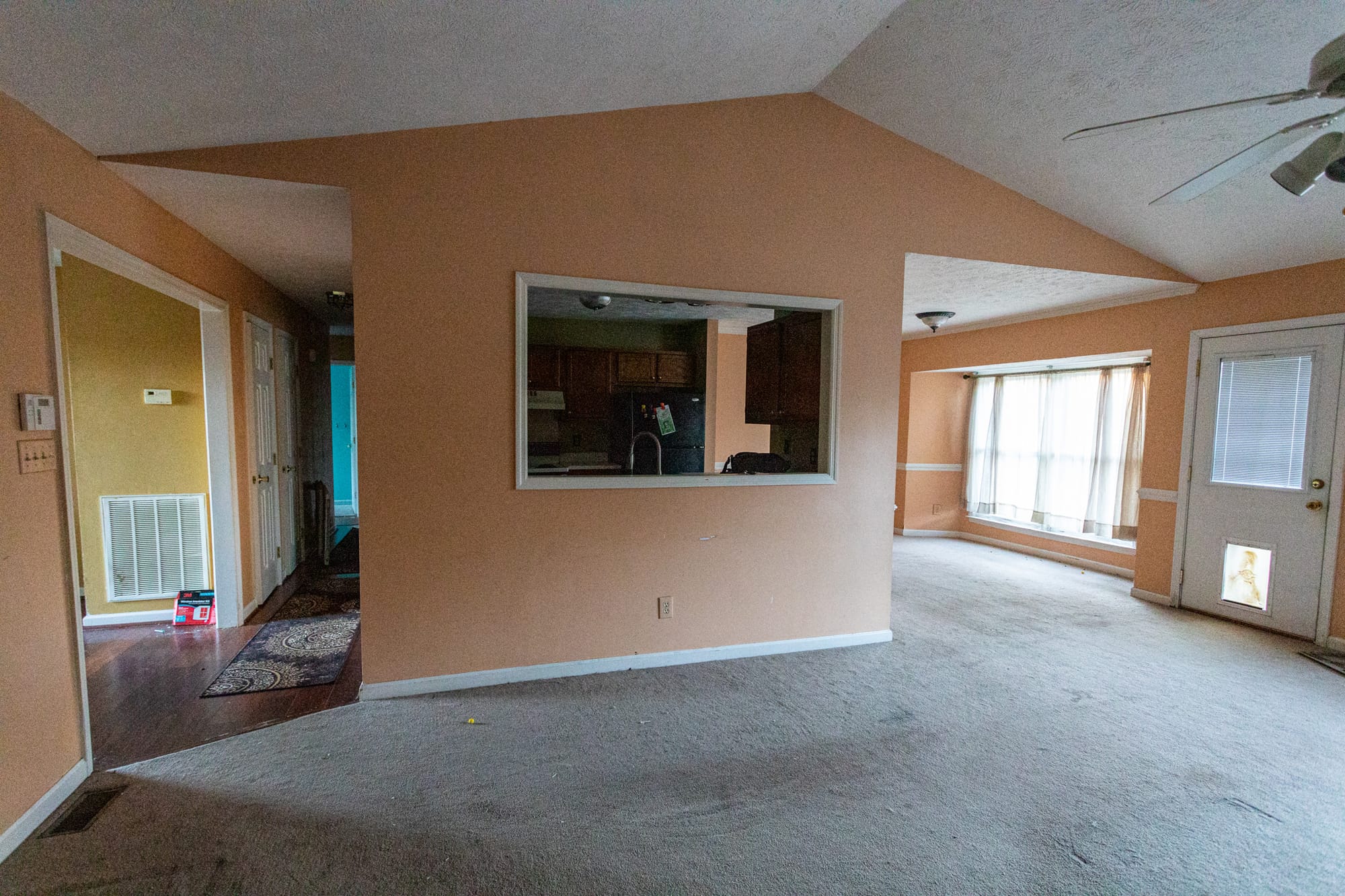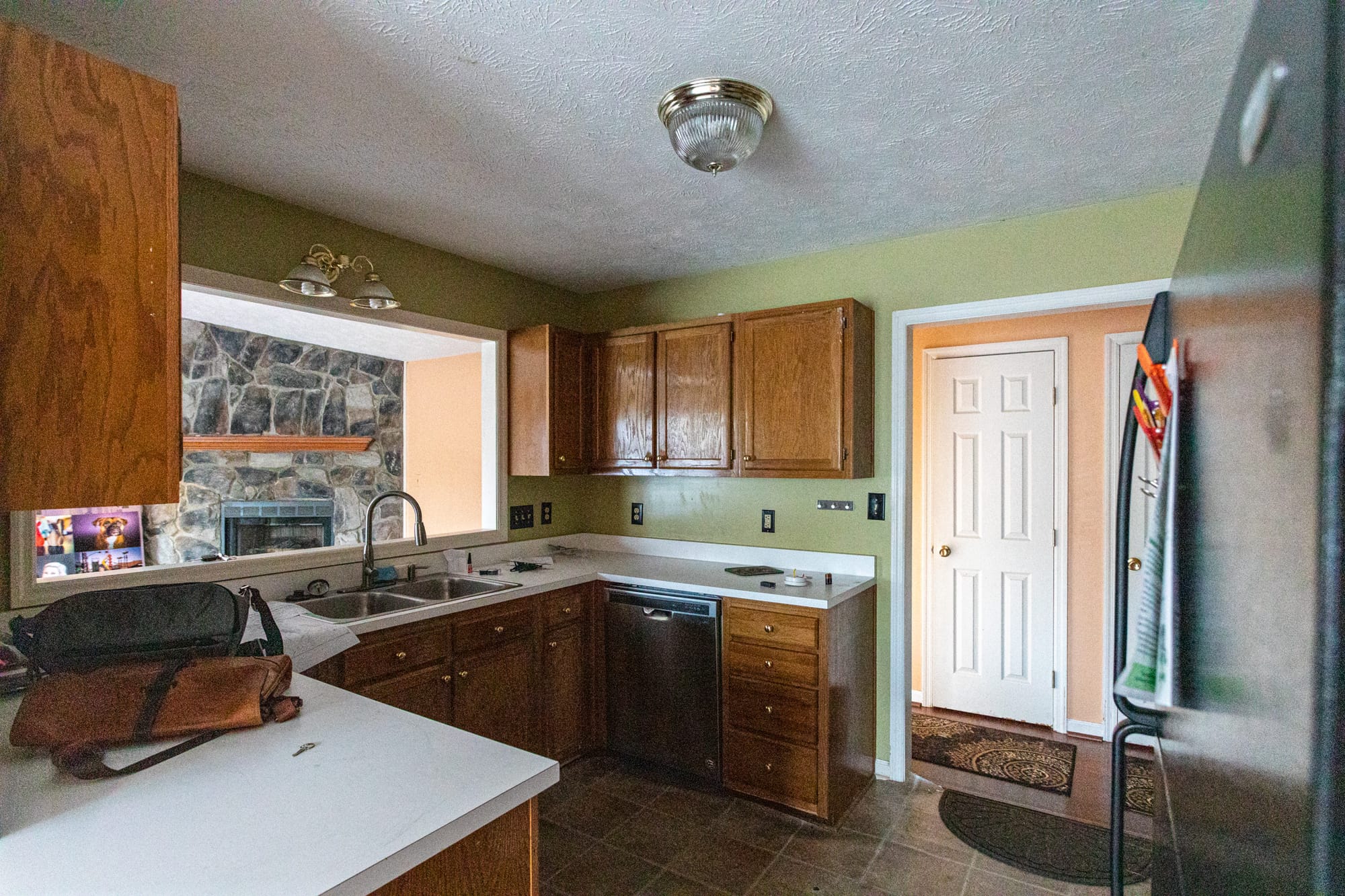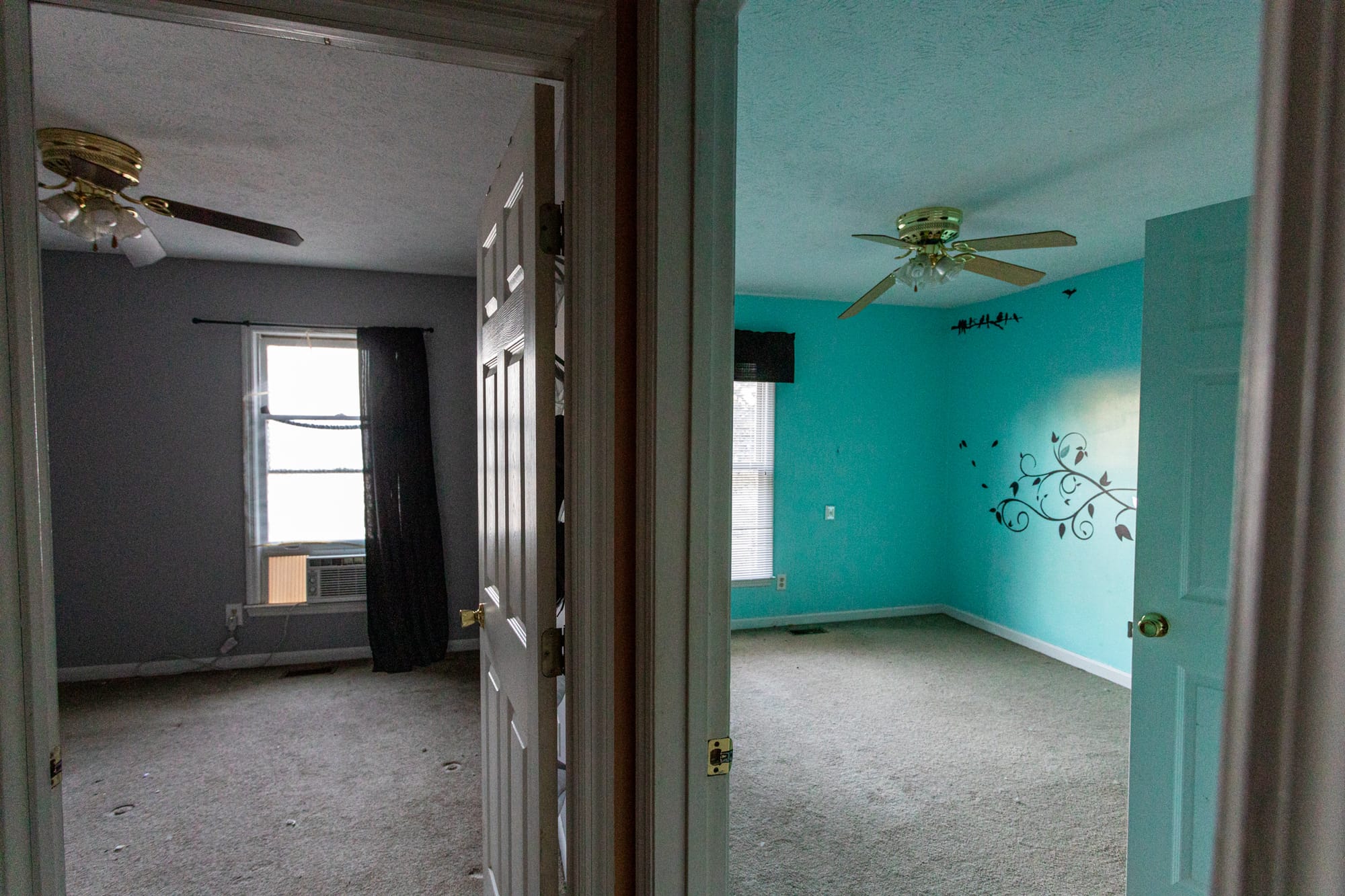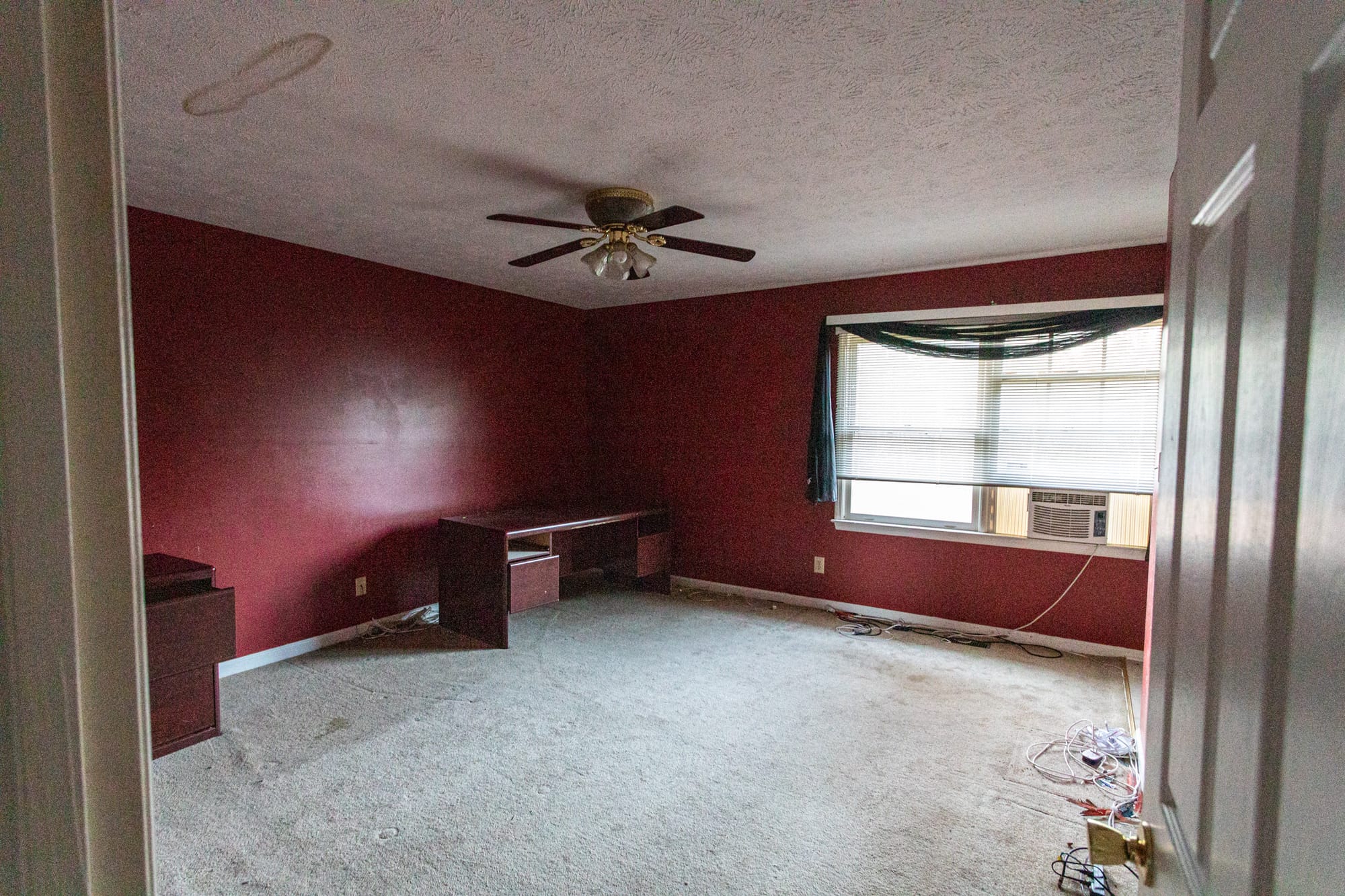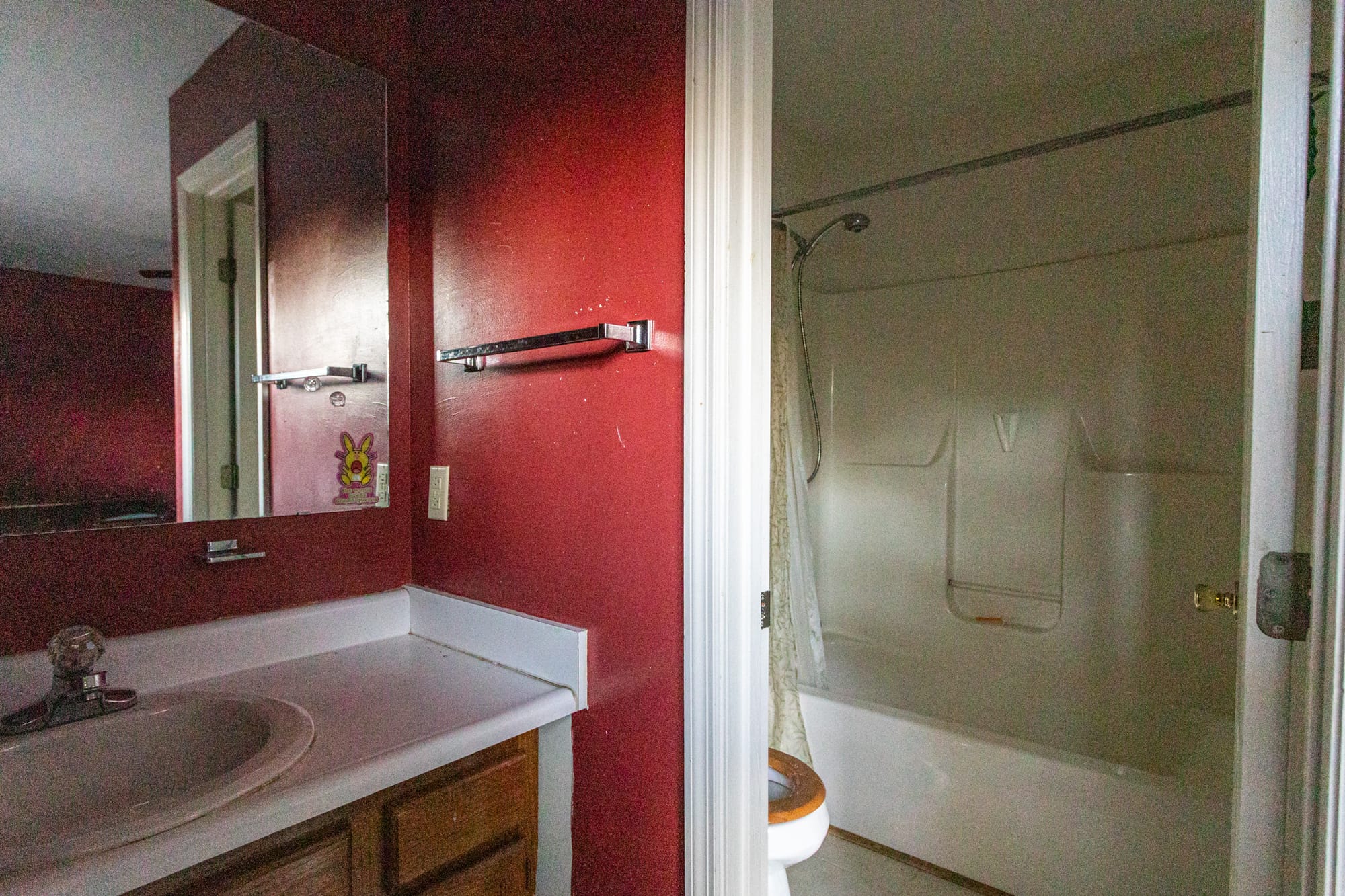Flip #1 (Part One)
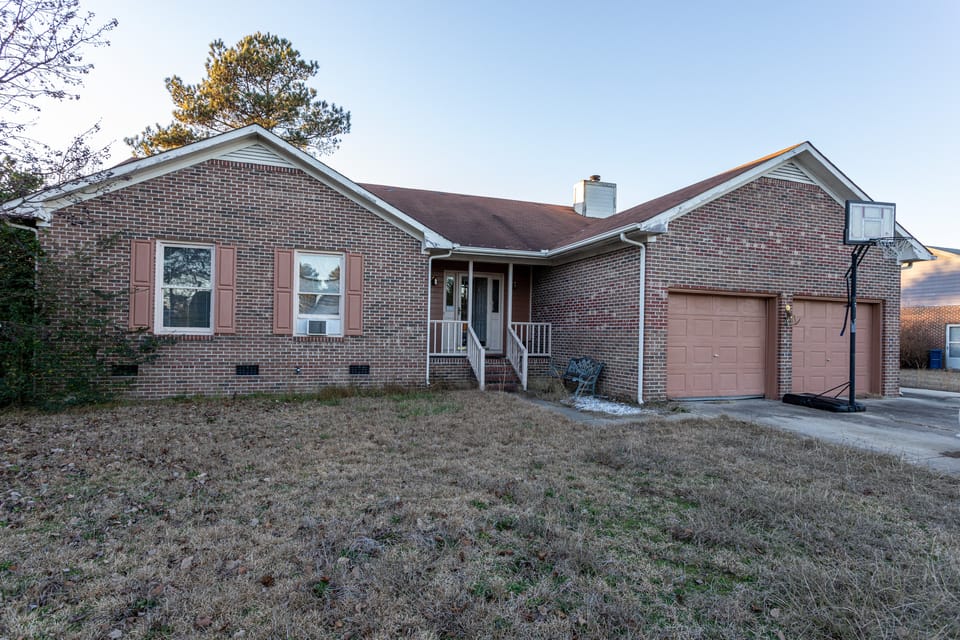
This is part one!
I started buying rentals a few years ago for a few specific reasons. For a while now I haven’t liked the idea of flipping at all and rentals offer far less risk which was good for me since I’m a fairly risk averse investor.
I would like to note that I’ve been bashing the idea of flips compared to rentals and like all things I talk smack about, it usually ends in my hypocrisy. This first blog post is all the factors that changed my situation to make flipping more appealing, and the lead up to this deal.
I’m posting this to share the entire transaction in my style of comprehensive detail and transparency.
How my calculus changed
I am a risk analyst by trade, by hobby, and sorta by personality. Maybe this makes me more prone to taking less risk overall but I like to think I just don’t take any unnecessary risks. I don’t take risks with huge upsides and huge downsides, I like to take risks with upsides disproportionately higher than there downsides.
So were my big problems with flipping, and what changed. If you’re a beginner to real estate, this part is for you, because most new flippers get really excited about buying deals but don’t know how to manage risk and often don’t understand the risks they are taking.
Concentrated portion of a balance sheet
Everyone has a balance sheet, just like every single business has one. Many people don’t put theirs together, but that doesn’t mean it doesn’t exit. What are you total assets and liabilities? If you have too much of one type of asset, or worse one single project as a high percentage of your balance sheet, this can cause “concentration risk”. Commonly knows as “all your eggs in one basket”. If you have a total net worth of 20,000 and you buy a flip with an all-in cost of $100,000 that becomes 500% of your total balance sheet. Concentration risk is not the end of the world, but it should be considered.
How I fixed this:
I’m rich as fuck, obviously….
In all seriousness, buying this flip is a much lower portion of my balance sheet since I first started. If it goes horribly wrong, it just can’t bankrupt me anymore. This is something new investors don’t respect, if one deal can completely ruin you, it’s not worth it.
High cost of capital
New investors usually have to borrow money, I certainly didn’t have $100,000 to throw at a flip for my first deals (still don’t!) so I would have had to borrow money (and did on this deal!).This is called cost of capital.
Beginners often go to hard money lenders for funding, which is essentially a legal loan shark. They loan to high risk projects with interest loans, big fees and low underwriting. This puts a tremendous time burden on the investors because every month they are going to be paying a monthly interest payment to the lender. The longer the flip, the bigger the cost of capital and the lower the margins.
How I fixed this:
After the last few years of buying deals and writing about them, I have gained some credibility in the marketplace and people were offering my money to partner on deals.
What’s important here is how I structured this deal and how I moved the risk around. I agreed to borrow the rehab funds only and I would pay for the house out of my funds, then I would give the money partner 30% of NET income. This is more than I would have paid to a hard money lender, so why would I do that?
First, I pay no interest and no payments, we split a bigger portion of my profit to the lender but if I make less I pay out less, and if I lose, I pay him back only principle. Second, I know this lender very well now, so he gave me the whole rehab budget all at once. No underwriting, no draws, no inspections, no holdups. Third, I paid for the house itself so I have to borrow less, and we make better decisions when we have something to lose.
Ease of use, aligned goals, and skin in the game all made the risk shift dramatically for me.
Uncertain human capital
Finding great contractors is the hardest part of this business. It gets a little easier as we get better, but for beginners like I was I didn’t know any great ones. I hadn’t even done a deal yet. What if you get a contractor to steal from you on your first deal? Who is your backup, and can you afford to lose the cash? These things happen every single day. I’ve had contractors rip me off plenty, many just do work that needs to be repeated, even more just waste time. The point is, the less contractor infrastructure you have the higher risk the project is
How I fixed this:
I spent the last 4 years building a team of vendors in town that I now have deep relationships with. We have worked on many rehab projects together, I know the costs very well, I know they will show up, and I know the work will be well.
This is a risk I worry about the least now.
A few other things:
When I started buying rentals it was because I hated my job and didn’t want another. That worked pretty well actually and it let me recently sell my house in Vegas and take some time off to just explore my ambitions.
Desperation is never a good condition to invest under, but right now in my life I’m under almost no pressure of responsibility at all. I have no job, no kids, no debt, and enough passive income to live quite a long time without worry. This is boring!
What should I do with my time that can be on my terms, can make some money for me, gets me more experience in real estate and I want something that I can produce good content with as well?
Another thing that I’ve been wanting to remedy is a bit of my rampant ego. In late 2017 I was on the very famous Biggerpockets podcast, an amazing experience that gave me a big bump in credibility in the real estate community.
So now everyone is treating me like a rockstar investor and I’ve only done a handful of deals, despite my arrogant persona, I knew that I needed to still put a lot of my dues in. So flipping houses is a means for me to practice building a business and getting volume of transaction experience.
My value add!
How about building a YouTube show around flipping?
Everyone is looking for value add these days right? Everyone wants to get creative right? My creative way to add value to a deal is to put it on YouTube.
I’ve been going photography for a long time now, about 5 years, making the switch to videography is both an exciting new challenge but also gives me a head start in fundamentals, and I have a lot of high quality equipment, AND I get to blend two of my favorite hobbies. I can’t help but to crush this right?
On top of all that, just like in real estate you need good mentors, in fact you need a good mentor to succeed at anything. I had one here in Fayetteville, an incredible photo and video mentor who taught me everything, someone I love working with, and he’s got a great business mindset as well. He say and liked my vision, so I included him into this deal. I built a payout for him into the NET of the deal, this gives us aligned goals.
To analyze a bit further, what this type of incentive system does does is create a strong positive feedback mechanism for him, when I do well. The better I do on this, the more money he gets paid, this lays an excellent ground work to be excited about the next job.
This is how you build good relationships. Find people you genuinely like, and then get them paid.
Finding the deal
I moved back to Fayetteville and immediately got to work. I know that the key to finding deals is to network with wholesalers and other investors, I wanted to get a deal that would be about average cost of house in the market and would be something I could sell fast.
A guy brought me a house for $15,000 in the best school district in the metro area, a 3/2 that would exit around $130,000 and was a lot of work but nothing I hadn’t done a few dozen times prior. Literally perfect! I paid the wholesaler $5,000 for it, we closed fairly quick with a few delays.
…it’s just as easy as I make it sound 😉
Closing
I’ve included the settlement statement for many of my past deals and I didn’t see any reason not to include it on this deal. This should help you know what to expect at closing. #transparency.
I almost went bust before I swung the first hammer
After I closed on this flip I later realized I might have made a huge mistake.
In the near area, the city is annexing land for a new highway. I knew it was close, but a few days after closing I had a tile guy at the house bidding, and he told me some of the nearby houses had been bought by the city already, I checked the street and 2 lots down from me the houses have already been demolished.
This made me very nervous. I may have thrown my money away.
To be clear, this was AFTER I did a lot of due diligence. I had a title search, I had 3 realtors tell me the property was good to go, had my team of contractors all look at it and say it was fine, I even went to city hall and they said not too worry.
Unfortunately I’m cursed with arrogance, so no matter how many people told me not too worry it didn’t sit well with me. No one was really sure this house was, they were just all pretty sure. I didn’t want to HOPE it would work out, I wanted to KNOW. That’s a good rule of thumb to live by.
I also recognize where people’s motives, leverages, and incentives are. Everyone is set to get paid if I move forward and win, but they have zero downside if I move forward and lose. Many people would say here, “well Alex these are your friends and partners and they want what’s best for you” which is true, but they also want what’s best for them. I can be grateful for great partners and think that their behavior is going to behave according to human nature. It’s not one or the other, it’s somewhere in between. It’s smart to measure the value you give someone’s advice based on the risk they take for that advice.
So I went to the DOT office and was able to see the plans for the new highway and how it affects my lot. Luckily, my house is staying where it is, however I did lose about 30 feet of my backyard and the house right next door is going away, my house is the last on the street that’s safe.
This is very good news for my flip, but it caused me stress, this is a good lesson of due diligence. Be thorough, and be strict.
Before pics
